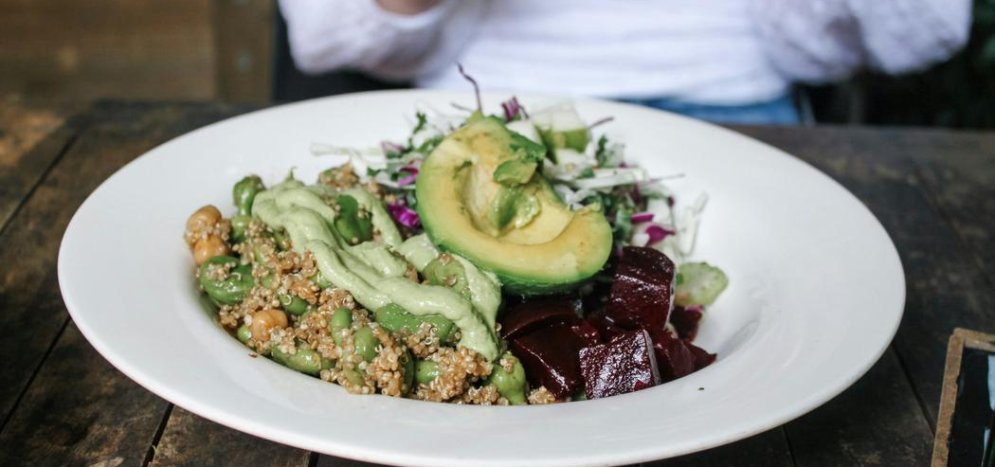Meal Planning for Long-Haul Drivers: Eat Smart on the Road
Long-haul trucking can be a rewarding yet demanding profession, particularly when it comes to maintaining a healthy diet on the road. Meal planning for long-haul drivers is essential for ensuring access to nutritious food options, which can significantly impact energy levels, focus, and overall well-being. This article explores effective meal planning strategies, recommends ideal food choices for the road, and provides practical tips for smart eating while traveling.
The Importance of Meal Planning for Long-Haul Drivers
Staying Energized During Long Drives
Understanding the role of nutrition is the first step in meal planning for long-haul drivers. Consuming nutrient-rich foods helps maintain energy levels, enhances focus, and diminishes fatigue. Drivers often experience long hours behind the wheel, which can lead to reduced concentration and energy. Incorporating balanced meals and snacks throughout the day can effectively combat these challenges, promoting safer and more efficient driving.
Health Implications of Poor Eating Habits
Long-haul drivers face an increased risk of health issues such as obesity, cardiovascular disease, and diabetes due to poor dietary choices. While fast food and convenience snacks are readily available on the road, they typically lack essential nutrients. Thoughtful meal planning encourages drivers to avoid unhealthy temptations and supports better health outcomes.
Best Foods for Long-Haul Drivers
Nutrient-Dense Options
Focusing on nutrient-dense foods that provide sufficient energy without excessive calories is crucial when planning meals. Consider the following categories:
- Whole Grains: Foods like brown rice, quinoa, and whole-grain bread offer complex carbohydrates that deliver sustained energy.
- Lean Proteins: Options such as chicken, turkey, fish, beans, and legumes are essential for muscle repair and growth.
- Fruits and Vegetables: Fresh produce is loaded with vitamins, minerals, and antioxidants. Convenient snacks like apple slices, baby carrots, or grapes are easy to consume on the road.
Healthy Snacks
Snacks greatly complement meals in meal planning for long-haul drivers. Some healthy snack alternatives include:
- Nuts and Seeds: These are excellent sources of protein and healthy fats. Monitor portions since they can be calorie-dense.
- Greek Yogurt: Rich in protein and probiotics, yogurt is a convenient snack that can be stored in a cooler.
- Granola Bars: Choose low-sugar options with wholesome ingredients.
Meal Prep Strategies for Success
Plan Your Meals Ahead of Time
Meal planning for long-haul drivers should begin well in advance of hitting the road. Preparing meals beforehand can save time and ensure healthier choices. Here are effective strategies for meal prep:
- Create a Weekly Menu: Outline meals for each day, considering any scheduled stops along the route.
- Develop a Grocery List: Based on your menu, compile a list of necessary ingredients and stock up while you can.
- Batch Cook: Dedicate time on your day off to prepare large portions of meals. Store them in individual servings in appropriate containers.
Use Containers Wisely
Choosing suitable storage solutions is essential for keeping meals fresh. Opt for:
- Insulated Containers: Effective for maintaining food at safe temperatures.
- Bento Boxes: Ideal for organizing meals and snacks in a compact format.
Tips for Eating Smart on the Road
Hydration
Staying hydrated is as important as eating well. Keep a refillable water bottle within reach and set reminders to drink regularly. Dehydration can lead to fatigue and decreased alertness, impacting driving performance.
Find Healthy Dining Options
When stopping for a meal, seek out restaurants that offer healthy choices. Many establishments now provide nutritional information, aiding in selecting better options. Favor meals with grilled proteins, steamed vegetables, and whole grains over fried items.
Maintaining a Healthy Routine
Exercise and Stretching
In addition to meal planning, incorporating physical activity into your routine is vital for overall health. Schedule frequent breaks to stretch and do light exercises. Simple stretches can relieve tension and enhance circulation, mitigating the adverse effects of prolonged sitting.
Sleep Hygiene
Quality sleep is essential for long-haul drivers. Aim for 7-9 hours of restful sleep each night to maintain focus and prevent fatigue on the road. Try to establish a consistent sleep schedule, even while away from home.
FAQ Section
What is meal planning for long-haul drivers?
Meal planning for long-haul drivers involves preparing and organizing nutritious meals and snacks in advance to ensure healthy options are available while on the road.
Why is meal planning important for long-haul drivers?
Effective meal planning helps maintain energy levels, improves focus, and promotes better health by reducing reliance on unhealthy convenience foods.
What types of foods should long-haul drivers focus on during meal planning?
Drivers should prioritize nutrient-dense foods, including whole grains, lean proteins, fruits, and vegetables, as well as healthy snacks like nuts, yogurt, and granola bars.
How can long-haul drivers effectively meal prep?
Drivers can meal prep effectively by creating a weekly menu, drafting a grocery list, and batch cooking during their time off. Utilizing insulated containers and bento boxes can help keep meals fresh.
How can long-haul drivers stay hydrated while driving?
Drivers can ensure proper hydration by keeping a refillable water bottle nearby and setting reminders to drink water regularly, which supports alertness during long drives.
Conclusion
Meal planning for long-haul drivers is an essential activity that enhances health, boosts energy levels, and improves overall well-being. By focusing on nutrient-rich foods, adopting effective meal prep strategies, and maintaining hydration, drivers can ensure they are well-prepared for their journeys. Incorporating these practices leads to a healthier lifestyle, making long-haul trucking a more enjoyable and sustainable career choice.
For additional insights on healthy eating, consider visiting ChooseMyPlate.gov.

